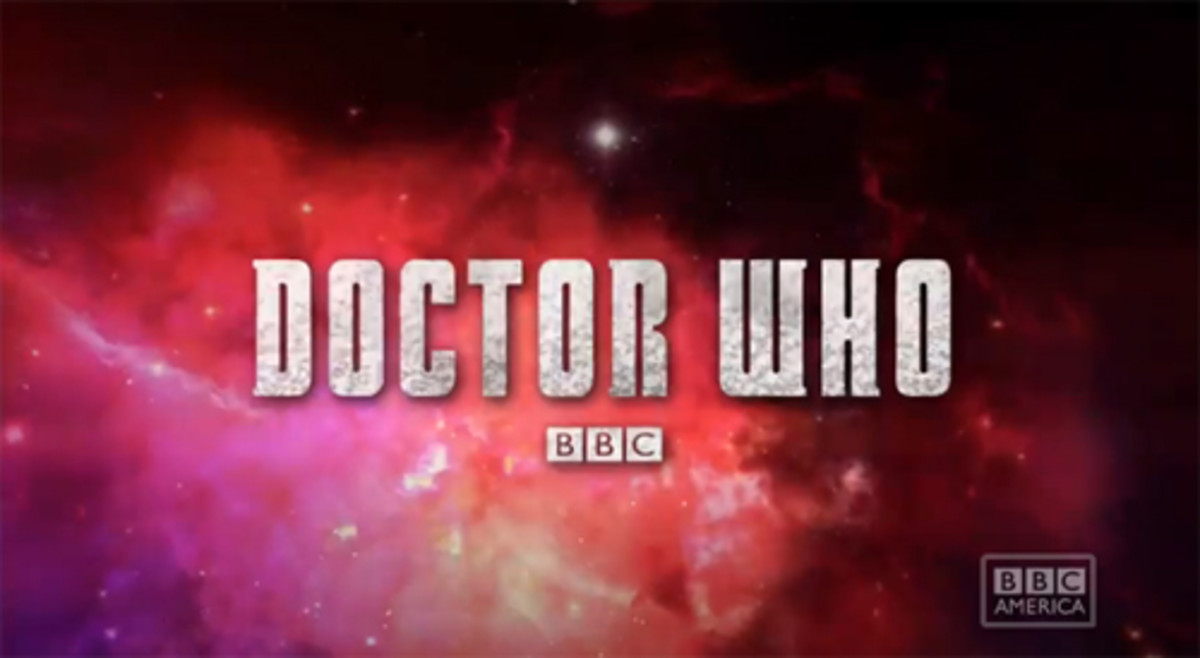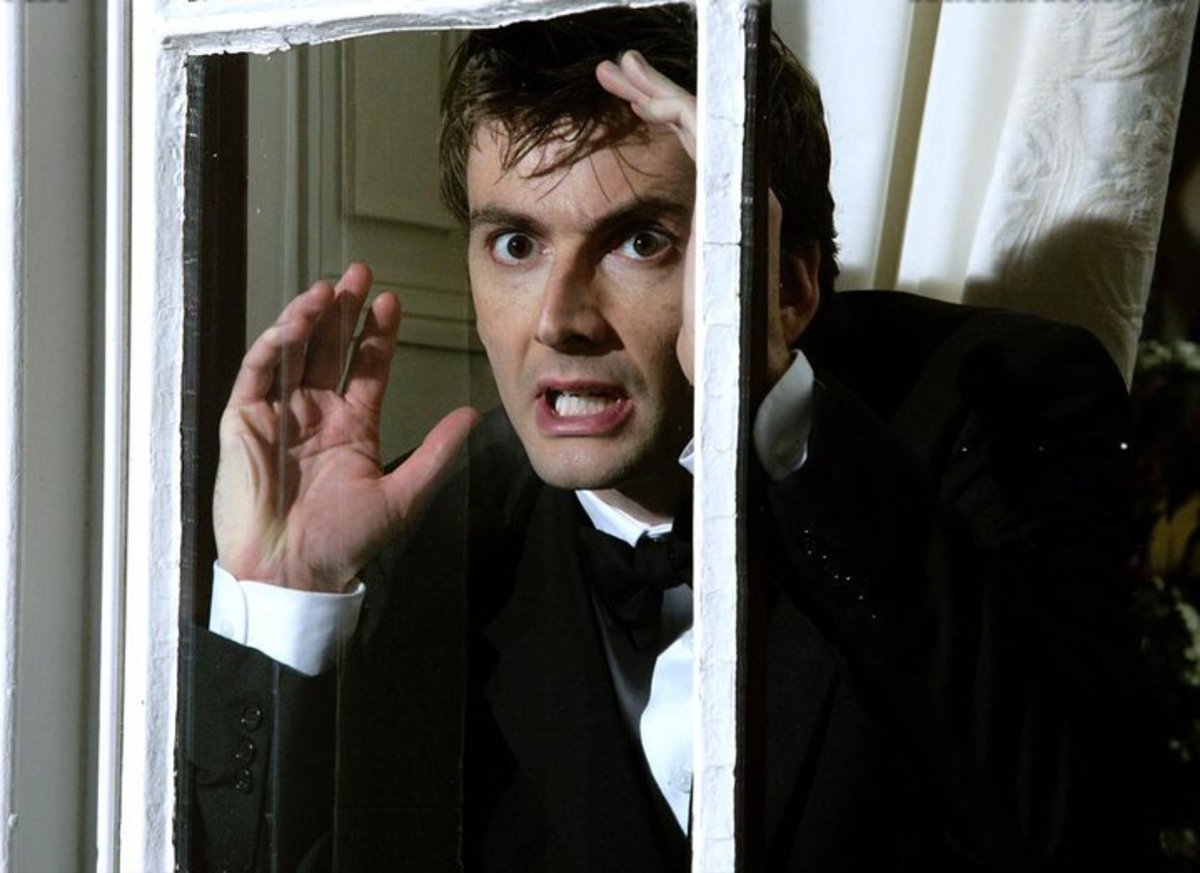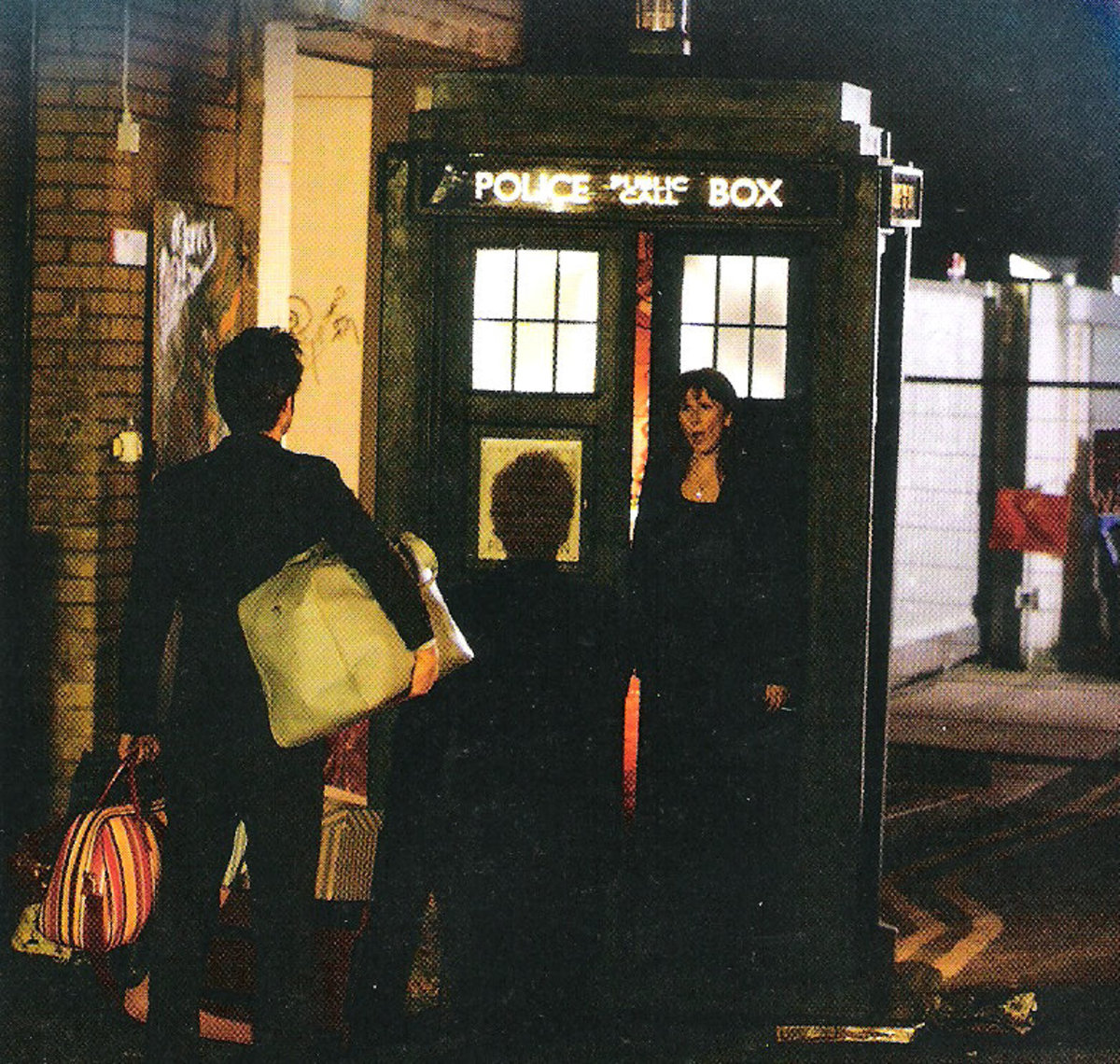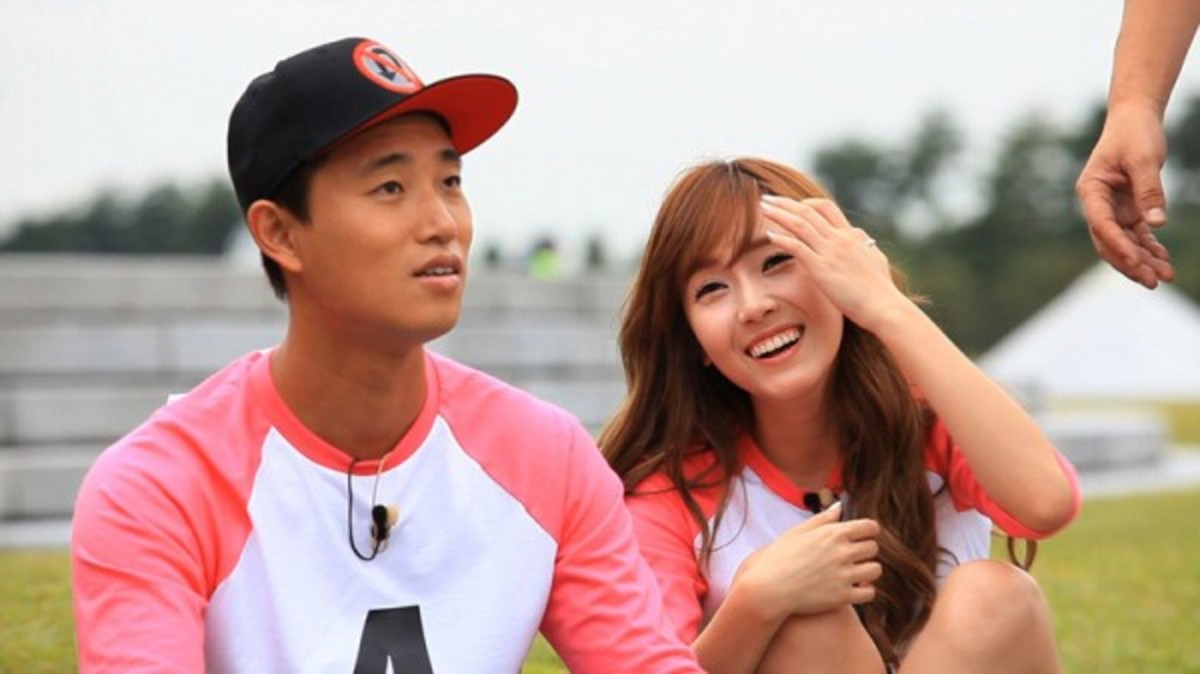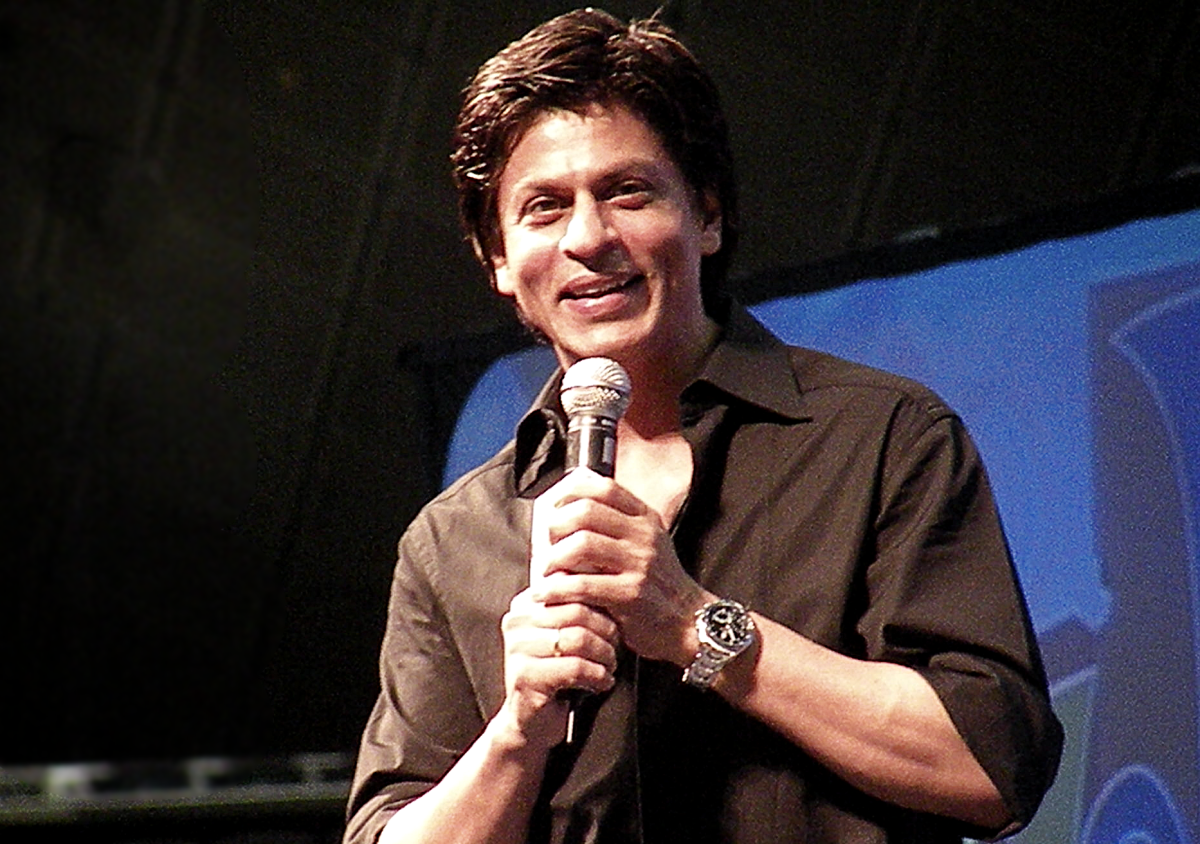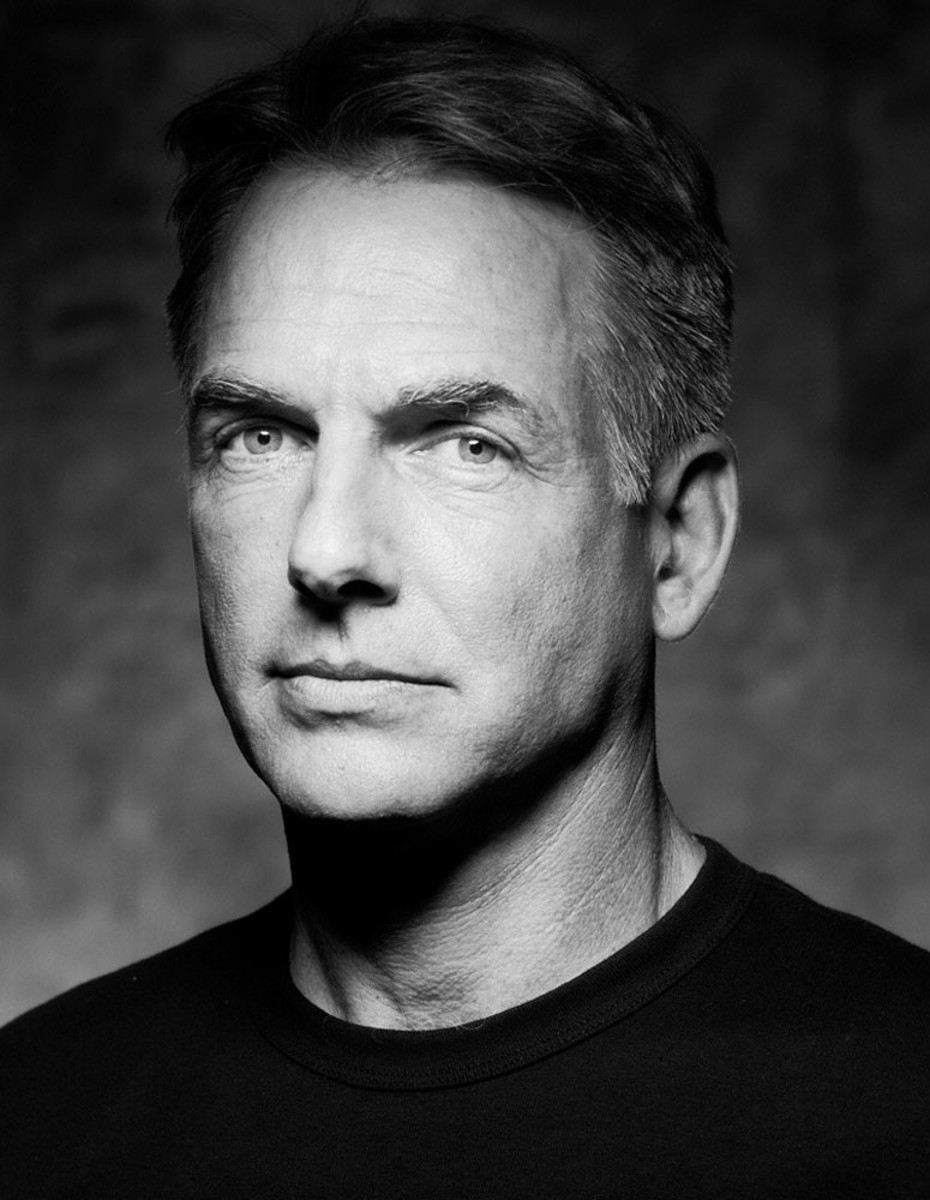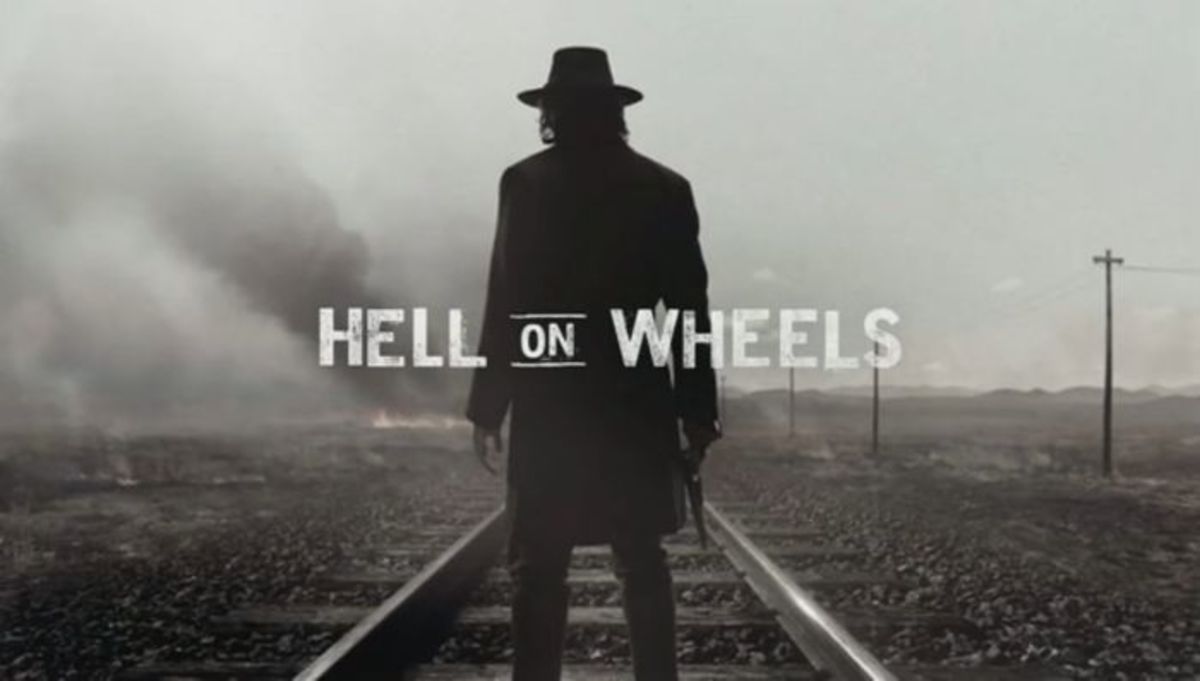Ten Essential Twelfth Doctor Moments
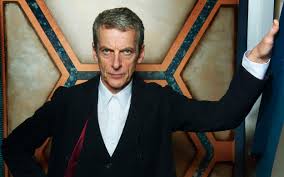
Peter Capaldi immediately had the disadvantageous detriment of ignorant, intolerant fans bemoaning his casting as the Twelfth Doctor, to spearhead the science fiction paragon, Doctor Who, into the advent of a uniquely new and alien, yet simultaneously vintage and familiar era of the show's production. He was initially derided for the travesty of being "too old" to play the part of the recently algorithmically typical established formula of young, charismatically charming and aesthetically appealing representatives of the Time Lord, but soon defied the unfavourable odds of inconsistent writing, unjustified derogations of execrable vilification and the onerous task of commencing his custody of the TARDIS key in the shadow of Matt Smith's Eleventh Doctor's near-immaculate tenure-Eventually demonstrably validating his claim as one of the most monumentally marvellous and majestic purveyors of magnanimity in the universe.
For a man at the senior stage of life of being in his fifties, he contributed a remarkable liveliness and animation to the character of the Doctor, interspersed with the grouchy crotchetiness as an unorthodoxly expected convention of the stereotypical "old man" protocol. And he benefitted from the system of ingratiating himself to fans gradually and exponentially, that marked his particular regeneration as one of the most emphatic and prominent recipients of an evolutionary progression as part of his character developmental arc. It has been criticised as inconsistent, but the foundations for the relentless and toilsome agony of being distressed by the beleaguerment of rediscovering his identity was what made his character rivetingly compelling for his most avid advocates.
The Twelfth Doctor's tumultuously tenuous inaugural phase can be largely attributed to the difficulty experienced in extrapolating definitively distinguished moments that were exemplary of the magnitude of the character's gravitas, by the verdict of a contingent consensus. But retrospectively, a majority have concurred that the tenure of Capaldi's Twelfth Doctor has been laden with iconic and memorable moments distributed appropriately and coherently, and resonating profoundly and affectingly. With honourable mentions to the sorrowfully omitted spoon at a swordfight, the philosophical perspective on hugging, the realisation of who he should become at remembering Caecilius' face in "The Girl Who Died, the "shuttity up up", and his abhorrent disdain with the generalisations of extraterrestrials taken into consideration, a selection of some of the greatest of those moments are allocated their due reverence and esteem in the following listicle.
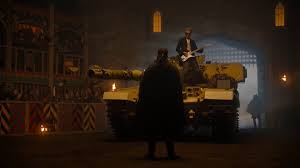
10. Ain't No Party Like A Viking Party(The Magician's Apprentice)
The Doctor had become entangled in the deeds of dalliance with recklessness many times, and had made himself more than well versed in proficient indulgence with many of the most dignified and righteous and the more deplorable and shameful assets of its denoted implications and consequent perceived judgements attributed to the perpetrator of such values. But even for the astonishingly imposing degree of his hubris' eccentricity and extraordinary exceptionality in its abundant profusion, it had not established itself so prominently and overtly as when he drove a tank into a Viking arena in 1138 Essex, playing a guitar amplified by the sonic screwdriver. He had been notified of his prophesied death upon refusal of the torturous drudgery of divulging his testimonial confession to the Time Lords, and of the being that sought his presence by Ohilda of the sisterhood of Karn, and was in audacious avoidance of his responsibilities.
There was a broadness to the bodacious performance he presented-Arresting the attention of his clamouring 12th-century audience with a hypnotically seductive mesmerism by way of the introduction of inexplicably advanced and foreign technology and urban vernacular centuries prematurely and along with the flair of the suave elegance that he executed gimmickry through magic tricks with. Missy and Clara Oswald arrived through makeshift methods of time travel after deducing his position in time and space courtesy of UNIT's bizarrely convoluted mechanisms of triangulating it, and had an ambivalent reaction to his boldness; Clara dumbfounded and impressed, despite the fallaciousness of his delinquency, and Missy appalled enough to have the gall to take sanctimonious superiority in a morality complex, despite the innumerable transgressions she committed.
While, in his previous series of adventures, he had been quite overly austere and sternly morose, his emergence with flourishing facetiousness and joviality, complemented by the performance of "Pretty Woman" upon the sight of Missy, marked and bolstered the blossoming dawn of his flirtations with comedic appeasement and alluring appeal to Whovians who may have been initially sceptical or even rejecting of his purveyed enticement.
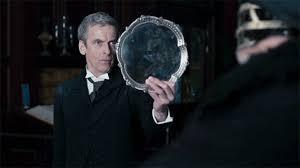
9. Defeating The Clockwork Cyborg(Deep Breath)
After his burgeoning auto-announcement following the regeneration into the body of the stubborn Scotsman, the expected connotations of maturity and a reserved composure of himself were subverted by the distressing frenzied delirium that most of his predecessors had languished through. Amnesia, perturbation and an irascibly unstable condition of his mental equanimity stuck and jeopardised any potential tranquillity he was able to conduct himself as a benefit of. Any hope of the unsophisticated civility was thrown to the wind, but not as an accompaniment to caution, as he exuded an aura of trepidation as he blunderingly meandered around Victorian London, attempting to solve the mystery of the death of the Tyrannosaurus Rex he had inadvertently transported there as the TARDIS spiralled out of control with unrestrained volatility after his regeneration.
The revelation of the clockwork cyborgs that were complicit in a plot to harvest the organs of organic life in order to make repairs to their ship, the SS Marie Antoinette(sister ship to the SS Madame De Pompadour), and themselves in assimilation of the various appendages was still enough to alert the Doctor to the abhorrence of the machines' immoral actions, and he still managed to persevere through his afflicted mentality and take enough umbrage with them in order to spur his confrontation of the principal robot in the main chamber of their vessel, disguised as a restaurant.
He was able to circumvent the distress of the most drastic alteration in personality he had ever undergone, and the pendulum swing of his character was not sufficiently beleaguering to prevent their inflicted brutality, by disabling the machine's function through his innateness of sheer profound eloquence of discouragement-Capitalising on negotiating superiority to convince the droid that they would never accomplish their goal of reaching the promised land as the ship surveyed above the London skyline, through the admirable achievement of no small feat, given the circumstances:
HALF-FACE MAN: You are stronger than you look.
DOCTOR: And I'm hoping you are too. This is over. Are you capable of admitting that?
HALF-FACE MAN: Do you have it in you to murder me?
DOCTOR: Those people down there. They're never small to me. Don't make assumptions about how far I will go to protect them, because I've already come a very long way. And unlike you, I don't expect to reach the promised land. You realise, of course, one of us is lying about our basic programming.
HALF-FACE MAN: Yes.
DOCTOR: And I think we both know who that is.
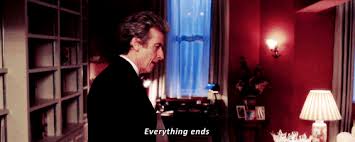
8. "Everything Ends"(The Return Of Doctor Mysterio)
During the inaugural phase of the commencement of his cycle, the Doctor was strongly opposed to the indulgent expression of any kind of melancholic sentimentality, by way of pompously pretentious aversion to affection and overly compassionate gestures, beyond the significant action of emancipating innocent life from a devastating fate. And even then, he fronted a rather insensitive and irate contempt from anything he deemed a digressional detraction from the plight of the overarching pertinence of their lives, or at least liberty.
But, through the amassed experience of the miscellaneous interactions he shared mutually with a myriad of different life forms, he finally relocated his catalyst for the expression of compassion by a measure of symbolism besides that of merely saving lives. The terminal experience that confirmed and deeply entrenched his sentimental compassion was the heartbreak of his final encounter with his wife, Professor River Song, before her inevitably impending death when he first encountered her at the mysterious library of the fifty-first century. With that knowledge, he reluctantly completed the exaction of the fabled prophecy of their illustrious past and gave her her sonic screwdriver as a gift.
After their relishing inundation within each other's presence, the Doctor took her assistant, Nardole, on a multitude of varified and versatile adventures in repetitive perpetuity of his set precedent of running away for all eternity. He defied his emotions, subduing them while maintaining a facade of insensitivity, but after visiting Grant and Lucy and witnessing the requiting reciprocity of their love for one another, he was affected into revealing a brief glimpse of perspicacity into his vulnerability; And he divulged one oracle of gospel truth that was profoundly affecting-Imploring them to savour every last moment of each other's gratifying presence:
DOCTOR: The world will be fine. I've been away for a while, but I'm back. I'll take care of anything that comes up.
GRANT: You were away?
NARDOLE: Huh. Twenty four years. What a night.
GRANT: Where'd you go?
LUCY: Wrong question. (puts Mister Huffle on the table) What was her name?
DOCTOR: I'm sure that I must be busy. I better go.
GRANT: You okay?
DOCTOR: Yes, yes, yes, I'm okay. Things end. That's all. Everything ends, and it's always sad. But everything begins again too, and that's always happy. Be happy. I'll look after everything else. Nardole.
LUCY: Hey, Doctor?
NARDOLE: Her name was River Song. They were together for a while and they were very happy. And then she died, a long time ago, in a library.
GRANT: Are you sure he's going to be all right?
NARDOLE: Hmm. He's the Doctor. He's very brave and he's very silly and I think, for a time, he's going to be very sad. But I promise, in the end, he'll be all right. I'll make sure of it.
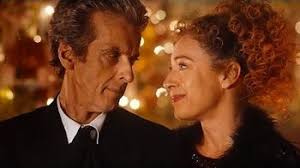
7. Darillium(The Husbands Of River Song)
The introduction to Professor River Song was one of, if not, the most fateful encounter of momentous consequence that the Doctor had ever experienced in his life. With every single convention with one another, the depth of the weight of gravitas and intensity prominently featured throughout their relationship was only allocated an exponentially increasing volume of breadth as their affections grew for each other. It was impelled by the severity of the stakes of the engagements they became involved in and were subjected to, and was the source of the Doctor's optimistic faith and its maintenance through his darkest and most dire hours.
They were only able to meet in ephemeral instances, sporadically strewn across their lives, and never in the correct chronological alignment due to the arbitration of their differing methods of time travel; And this mandated them to the possession of corresponding diaries to ensure the re-familiarization with the progression of the other's development and attunement to the circumstances with which they found each other. River's diary had not recorded any familiarity with the Doctor when in adoption of the form of their Twelfth incarnation, and she was rendered estranged from him for the majority of their adventure against King Hydroflax; But when they defeated him and found themselves on the surface of the planet Darillum in the wake of the conflict-the planet that had been rhapsodised as the destined location for their spellbound final encounter-the Doctor realised this unfortunate truth, and reluctantly obliged with the procedure with what the tales dictated would transpire that night.
He gifted her her very own sonic screwdriver after erecting a restaurant with a spectacular view over the planet's singing towers, and spent his final night with her, after disclosing the agonising truth about where they were destined to proceed toward. But he had one final reward for them both-The revelation that one night on Darillium endured for twenty-four years. The escapade functioed to achieve much more than simply acquaint the Doctor and River's assistant, Nardole; It permitted the Twelfth Doctor to exhibit his full capability of compassion and gentility, that hadn't been previously explored to the same degree with that iteration of the character.
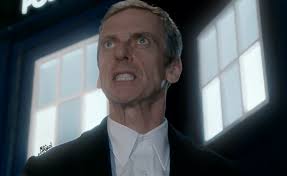
6. "The Man Who Stops The Monsters"(Flatline)
The Twelfth Doctor was still struggling amidst the toils of discovering his identity as the most benign benefactor of the universe when he travelled to contemporary Bristol with Clara, and they were confronted with beings restricted by their subsistence upon the 2-Dimensional plain, by means of their physicality but not their potent malignancy-As they assimilated humans inhabiting the Fourth Dimension into their own. The Doctor's delicate handling of fragile matters was not at its greatest epitome of excellence and sensitivity, but he had maintained his resilient purveyance of the attentive vigilance protecting the welfare of the universe; Even while confined to operation from inside the TARDIS that had been immensely reduced in external size, due to the influx of the syphoning of energy it required for the "Boneless" to breach the threshold inhibiting their emergence onto the physical plain.
There were still a considerable mass of fans that were unconvinced of the Twelfth Doctor's morality, as he had made many dubious decisions, and had even admitted to as much when confiding in Clara with a confession over the mistakes he had made over 2000 years of eminent existence. A quintessentially compelling and inspiring "Doctor" moment was still desperately necessitated in order to ingratiate him to certain spheres of Whovians in their opinion, and when he finally accomplished that, he was not subtle, and he pulled no punches. He proudly flaunted his validated justification for resorting to the attempt to defeat the menaces in defence of the world, when he addressed them with a respectful warning. With Clara assuming the duties of the Doctor's mantle while the life support systems of the TARDIS were failing as it continued to shrink, he deceived the Boneless into infusing the ship with sufficient energy to restore its power and size, and began to communicate with them over audio relay:
"I tried to talk. I want you to remember that. I tried to reach out, I tried to understand you, but I think that you understand us perfectly. And I think you just don't care. And I don't know whether you are here to invade, infiltrate or just replace us. I don't suppose it really matters now. You are monsters. That is the role you seem determined to play. So it seems I must play mine. The man that stops the monsters. I'm sending you back to your own dimension. Who knows? Some of you may even survive the trip. And, if you do, remember this. You are not welcome here. This plane is protected. I am the Doctor. And i name you the Boneless"
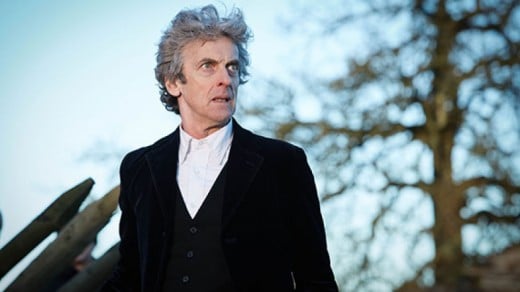
5. Destruction Of The Cyber Platform/"Where I Stand"(The Doctor Falls)
In the Twelfth Doctor's penultimate adventure, he was not only affronted by one of the most malignant schemes of the Mondasian Cybermen under commission of Jorg and the nurse, but the death of his adored companion, Bill, and her conversion into one of the robotic brutes, and the resurgent return of the Master-As he attempted to corrupt his future incarnation, Missy. After the devastating realisation of her transformation and being knocked unconscious by the Master, he awoke atop a roof, where Bill's Cyber-body stood in attendance while the Master taunted him within the synthetic environment of an entire city contained on a single floor of a colony transport reversing out of a black hole, and acting as a grand production facility for more mechanical menaces.
He had however been extremely sagacious in his foresight of certain aspects of the situation, and had deceived the Master as he reprogrammed the hive integrity of the Cybermen to converge on beings with two hearts in the ambition to convert them. In his infinite cowardice, the Master resolved to flee, and subsequently opened the opportunity for the Doctor to follow suit; Which he did, albeit after being shot by a Cyberman and being necessitated for rescue from Cyber-Bill. They absconded the factory on floor level 1056 to the countryside environment of floor level 0507, and the Doctor spent the remainder of the adventure attempting desperately to impede and suppress the inescapable fate of his biology, through the commencement of the regenerative process.
It really exemplified the subversive petulant defiance as he refused to change, but also the relentless perseverance of his magnanimous convictions, as he resisted his body's demanding physical tax to attempt to prevent the Cybermen's brutally impending invasive assault of the solar farm-Intent on converting its innocent inhabitants in the blooming expansion of their unmitigated and merciless adaptation. He would never be able to triumph in the onerous plight solitarily though, and in the most urgent state of desperation he had experienced since the harrowing revelation of Bill's fate, he pled with the Master for generous aid. It was, of course, futile, and the Master audaciously derided his earnet heartfelt appeal. But, undeterred by the declination of his nemesis, the covert arrangement with Missy and his resilient defiance of adversity inspired him to contumaciously resolve to make another sacrifice, and destroy the entire floor while evacuating the innocents aboard.
His appeal preceding that noble deed was one-hundred per cent, pure, genuinely stellar Doctor. It could not have been more endearing for any advocate of kindness, or of the intrinsic philanthropy of the character's best interests of mercy:
DOCTOR: There's another solar farm five levels above us. If I can get all the children up there, and most of the adults
MASTER: Then the Cybermen will find them again.
DOCTOR: It's the best I can do, so I'm doing it. Do you have a problem with that?
MASTER: You can't win.
DOCTOR: I know! And?
MASTER: Come on, Lady Version. I honestly don't know what you see in him.
MISSY: Likewise.
DOCTOR: No! No! When I say no, you turn back around! (catches up with them) Hey! I'm going to be dead in a few hours, so before I go, let's have this out, you and me, once and for all. Winning? Is that what you think it's about? I'm not trying to win. I'm not doing this because I want to beat someone, or because I hate someone, or because, because I want to blame someone. It's not because it's fun and God knows it's not because it's easy. It's not even because it works, because it hardly ever does. I do what I do, because it's right! Because it's decent! And above all, it's kind. It's just that. Just kind. If I run away today, good people will die. If I stand and fight, some of them might live. Maybe not many, maybe not for long. Hey, you know, maybe there's no point in any of this at all, but it's the best I can do, so I'm going to do it. And I will stand here doing it till it kills me. You're going to die too, some day. How will that be? Have you thought about it? What would you die for? Who I am is where I stand. Where I stand, is where I fall. Stand with me. These people are terrified. Maybe we can help, a little. Why not, just at the end, just be kind?
MASTER: See this face? Take a good, long look at it. This is the face that didn't listen to a word you just said.
DOCTOR: Missy. Missy. You've changed. I know you have. And I know what you're capable of. Stand with me. It's all I've ever wanted.
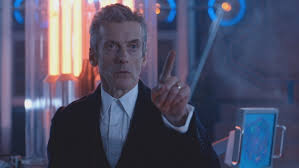
4. Unconditional Duty Of Care(Dark Water)
Even at his most morally dubious, the Twelfth Doctor retained the intense pressure he imposed upon himself to uphold the honourable "duty of care" he had over Clara. She was essentially the apple of his eye, and it was because of the vehemence with which he approached the responsibility as a pathological compulsion that inadvertently lead to arguments and exchanges of spite between them. But his adoring adulation and admiration as he beheld her as a priority above even himself was unconditional and unparalleled, even when faced with the contempt of his beloved companion. They were the best of friends and couldn't resist each other-Even during the most tenuous state their relationship was plunged into, where she forwent probationary intermissions of absence from the TARDIS.
There were several instances during that period that brought the test of their fidelity to and tolerance of one another to its full capacity of limitation, such as the mortification that Clara felt when he abandoned her to determine the fate of the being contained within the gestating egg that the moon acted as and the confrontational objection the Doctor had of her relationship with Danny Pink in his constant protectiveness over her. But there was no trial more significant than when she completely betrayed his trust. When Danny Pink was struck by a car, she intended to force the Doctor to break the laws of paradoxical interference and intervene to prevent his mortal fate, with reckless abandon to the expense.
She held him hostage, taking him to a volcano and threatening to throw all of the keys to his time and space vessel into the molten lava, and did so-Or so she thought. The Doctor intuitively anticipated her motivations when she entered the TARDIS, and instigated a trance state to witness how exactly the events would transpire in her mind. After awakening from the suspension of the haze, she was ashamed and fully expected him to dismiss her as the minimal repercussion of her mutiny, but her established a superiority over her by way of forgiveness, in the most significant instance of compassion he had exhibited to that point:
DOCTOR: Yes, you're quite the mess of chemicals, aren't you?
CLARA: So, what now? What do we do now? You and me, what happens now? Doctor?
DOCTOR: Go to hell.
CLARA: Fair enough. Absolutely fair enough.
DOCTOR: Clara? You asked me what we're going to do. I told you. We're going to hell. Or wherever it is people go when they die. If there is anywhere. Wherever it is, we're going to go there and we're going to find Danny. And if it is in any way possible, we're going to bring him home. Almost every culture in the universe has some concept of an afterlife. I always meant to have a look around, see if I could find one.
CLARA: You're going to help me?
DOCTOR: Well, why wouldn't I help you?
CLARA: Because of what I just did. I just
DOCTOR: You betrayed me. Betrayed my trust, you betrayed our friendship, you betrayed everything that I've ever stood for. You let me down!
CLARA: Then why are you helping me?
DOCTOR: Why? Do you think I care for you so little that betraying me would make a difference? Stop it with the eyes. Don't do that with the eyes. How do you do that anyway? It's like they inflate. Cut out the whining while you're at it. We've got work to do. This is it, Clara, one of those moments.
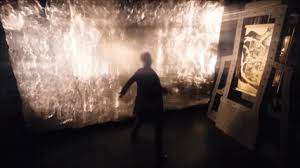
3. Shepherd's Boy(Heaven Sent)
Clara had spent the majority of her time in the TARDIS attempting to fulfil the expectation of herself to replicate the compassionate benevolence of the Doctor of her own convicted volition-All with the ambition of serving as a testimonial homage to the symbolic semblance of everything the Doctor represented through his purveyances donated to the universe. She literally wanted to be as much of a facsimile of him as was possible, and her devotion to that cause was persistent to a fault, as she returned to London to reunite with Rigsy, whom she had first encountered in the struggle against the Boneless.
Realising that he had been sentenced to an impending death on the erroneous allegation of being complicit in the murder of an unsuspecting victim taking refuge in a concealed street in London. It had transpired that it was a component of a plot to draw the Doctor's attention and to coerce him into running the perturbing gauntlet of his confession dial, and make the demanded amends that the Time Lords felt entitled to from their most ostracised alum, and it was Clara that unpredictably fell prey to being the collateral damage of the volatile implications of such a heinous contrived machination.
She relieved Rigsy of his sentence at the adoption of it herself, and it was because of that that the evidenced absolvement of Rigsy's culpability could not exonerate her from the fate of facing the lethal raven. The Doctor's TARDIS key was confiscated, he was involuntarily assigned a teleportation device, and forced into the fray of despair and hopelessness, before being set the task of making a foray through the labyrinth of a horrifying and mysterious maze of a castle while being pursued by a relentlessly devoted unidentified beast that was hell-bent on its vendetta to kill him. The Doctor's emotions flared to a most magnified and intense degree, and his judgemental determination of the Time Lords' guilt in the death of his beloved companion spurred an exacerbation of the deep-seated vengeful rage within him.
He embraced the relentless toil he was subjected to, repeatedly fleeing from the beast as years became decades, then centuries, then millennia-Investigating into the mysterious curiosity of freshly laid clothes by a fireplace in a room close to the lake he dove into to abscond the beast, and eventually discovering that the identical fabrication of the garments was attributable to the fact that it had been a previous version of himself that had progressed to a wall made of solid and nearly indestructible Azbantium, that he resorted to attempting to breach with nothing but his fist; To be caught by the best and fatally wounded, before crawling back through the entire castle to the chamber room which he originally arrived in, to instigate the teleportation of another facsimile of himself by the virtue of the genetic residue he had remaining in the teleport shaft.
The parable served as a metaphorical representation of the eternal suffering of the mind and body that anyone could possibly be tormented by the torture of, but within the dramatically fantastical dynamic of the eternal existence of a Time Lord and a horrific environment-He tangled with an almost irrational sense of self-loathing, but also the isolated surge forward inspired by his vengeance and determined defiance to the terror he was fraught with. Across the course of his four and a half billion year anguish, he regaled The Veil and audiences with a tale that he replaced an outright confession with, and only disclosing brief and modest disseminations of repentance. The tale itself was the most compelling element of his entire experience, and that of the astounded viewers:
""The shepherd’s boy says, “There’s this mountain of pure diamond. It takes an hour to climb it, and an hour to go around it. Every hundred years, a little bird comes. It sharpens its beak on the diamond mountain. And when the entire mountain is chiselled away, the first second of eternity will have passed.” You must think that’s a hell of a long time. Personally, I think that’s a hell of a bird.""
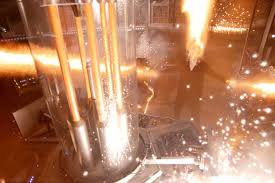
2. Regeneration(Twice Upon A Time)
The novelty of the endearment of the anticipation preceding any particular Doctor's ordeal with regeneration never fails to persist and mesmerise invested and immersed fans of the science fiction paragon. And despite the amassed experience of undergoing several physical rejuvenation of their cellular and mental construction and the subsistence for over two millennia(and the additional 4.5 billion years, counting the confession dial charade), convetional expectation would dictate that the Doctor would advance forth into it with minimal apprehension. But the Twelfth Doctor still expressed an exhibition of illogical agitated tension in his defiance preceding the event.
Fully aware that he was going to die after being shot by a Cyberman, he suppressed the exuding energy of the regenerative process for as long as he found himself capable of, but refused to embrace the nature of his bodily function, until a coincidental encounter with another of his species subjected to a similar fate after a different exchange of acrimony on Mondas. The very First iteration of the Doctor stumbled across the Twelfth as he was bellowing with anguished resistance, and after defying the process of exhaustion of the toilsome toll took on his own body. The pair experienced a beleaguering prospect of replicating glass creatures creating clones of other beings, an encounter with a Captain from the First World War faced with the terrifying objection to his own mortality.
With the inundation of disconcerting potential of the situation, the Doctors became too caught up in the prospect of a disaster, but realised the innocuousness of their circumstance, accepted their imminent transformation, returned the Captain to the area in time from which he was extracted(only to avert his death at the dawn of the Armistice) and were allocated enough time for a sentimental and emotionally compelling final farewell. When taken into consideration alongside the prominent quotes the Twelfth Doctor orated throughout, the calibre of the monumental weight emphasised on his regeneration couldn't have been more poignant:
"Ah! Hello. I'm the Doctor. Argh! No, no. I'm not a doctor. I am the Doctor. The original, you might say. Doctor. Doctor, let it go. Time enough. Pity. No stars. I hoped there'd be stars."
"Oh, there it is. The silly old universe. The more I save it, the more it needs saving. It's a treadmill. Yes, yes, I know. They'll get it all wrong without me. I suppose one more lifetime wouldn't kill anyone. Well, except me. You wait a moment, Doctor. Let's get it right. I've got a few things to say to you. Basic stuff first. Never be cruel, never be cowardly, and never, ever eat pears! Remember, hate is always foolish. and love is always wise. Always try to be nice, but never fail to be kind. Oh, and you mustn't tell anyone your name. No one would understand it, anyway. Except, ah! Except children. Children can hear it sometimes. If their hearts are in the right place, and the stars are too, children can hear your name. Argh! But nobody else. Nobody else, ever. Laugh hard, run fast, be kind. Doctor, I let you go.
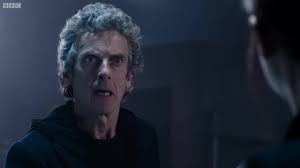
1. The Anti-War Speech(The Zygon Inversion)
The infamous soliloquy the Doctor uttered in desperate, but deploring, and disappointed, but hopeful optimism of the possibility it would have of eloquently convincing the disguised Zygon, Bonnie, or Kate Lethbridge-Stewart from detonating an explosion from the Black Archive beneath the Tower Of London is vastly considered one of the most profound and definitive of any scene of any era of Doctor Who. On that basis, it has become almost immediately revered and esteemed atop the zenith heights of the echelons of dramatic competence and gravitas, and has enshrined its orator eternally with the deference that deems him one of the greatest alums of science fiction broadcast.
Having experienced the ruthless and mercilessly victimising trauma of the Time War, no matter the prevalence of its conclusion upon his returning intervention, the Doctor was consequently rigid in his abhorrence of any form of belligerent conquest. He had created the placebo circumstance as a precautionary ultimatum, pending the exacerbation of the tension between humanity and the covertly concealed Zygon impersonators disguised as humans in accommodation of their occupancy of the Earth due to the devastation of their homeworld. It was an improvised scenario necessitated by the desperation of their predicament, and inevitably, temperaments of the radicalised elitists of the alien refugees.
Bonnie was stubborn, petulant and deluded, but saw reason through the unrelenting faith of the Doctor, combined with the validation of his credentials within a warring environment:
DOCTOR: Oh, hello! Hi. Hi. Stop this. Stop this, please. Let me take both of these boxes away. We'll forgive, we'll forget. And the ceasefire will stand.
CLARA-Z: No.
KATE: Doctor, which of these buttons do I press? Doctor, which one? Truth or consequences?
CLARA-Z: Truth or consequences?
DOCTOR: This is the moment we've all been waiting for. Make your mind up time! One of those buttons will destroy the Zygons, release the imbecile's gas. The other one detonates the nuclear warhead under the Black Archive. It'll destroy everyone in London. Bonnie. Bonnie, sweetheart! One of those buttons will unmask every Zygon in the world. The other one cancels their ability to change form. It'll make them human beings for ever. There are safeguards beyond safeguards. I did this on a very important day for me and this ceasefire will stand.
CLARA-Z: This is wrong.
DOCTOR: No, it's not.
CLARA-Z: You are responsible for all the violence. All of the suffering.
DOCTOR: No, I'm not.
CLARA-Z: Yes.
DOCTOR: No.
CLARA-Z: Yes. You engineered this situation, Doctor. This is your fault.
DOCTOR: No, it's not. It's your fault.
CLARA-Z: I had to do what I've done.
DOCTOR: So did I.
CLARA-Z: We've been treated like cattle.
DOCTOR: So what.
CLARA-Z: We've been left to fend for ourselves.
DOCTOR: So's everyone.
CLARA-Z: It's not fair.
DOCTOR: Oh, it's not fair! Oh, I didn't realise that it was not fair! Well, you know what? My Tardis doesn't work properly and I don't have my own personal tailor.
CLARA-Z: The things don't equate.
DOCTOR: These things have happened, Zygella. They are facts. You just want cruelty to beget cruelty. You're not superior to people who were cruel to you. you're just a whole bunch of new cruel people. A whole bunch of new cruel people being cruel to some other people, who'll end up being cruel to you. The only way anyone can live in peace is if they're prepared to forgive. Why don't you break the cycle?
CLARA-Z: Why should we?
DOCTOR: What is it that you actually want?
CLARA-Z: War.
DOCTOR: Ah. Ah, right. And when this war is over, when you have a homeland free from humans, what do you think it's going to be like? Do you know? Have you thought about it? Have you given it any consideration? Because you're very close to getting what you want. What's it going to be like? Paint me a picture. Are you going to live in houses? Do you want people to go to work? Will there be holidays? Oh! Will there be music? Do you think people will be allowed to play violins? Who's going to make the violins? Well? Oh, you don't actually know, do you? Because, like every other tantrumming child in history, Bonnie, you don't actually know what you want. So, let me ask you a question about this brave new world of yours. When you've killed all the bad guys, and when it's all perfect and just and fair, when you have finally got it exactly the way you want it, what are you going to do with the people like you? The troublemakers. How are you going to protect your glorious revolution from the next one?
CLARA-Z: We'll win.
DOCTOR: Oh, will you? Well, maybe, maybe you will win! But nobody wins for long. The wheel just keeps turning. So, come on. Break the cycle.
CLARA-Z: Why are you still talking?
DOCTOR: Because I want to get you to see, and I'm almost there!
CLARA-Z: Do you know what I see, Doctor? A box. A box with everything I need. A fifty percent chance.
KATE: For us, too.
DOCTOR: And we're off! Fingers on buzzers! Are you feeling lucky? Are you ready to play the game? Who's going to be quickest? Who's going to be luckiest?
KATE: This is not a game!
DOCTOR: No, it's not a game, sweetheart, and I mean that most sincerely.
CLARA-Z: Why are you doing this?
KATE: Yes, I'd quite like to know that, too. You set this up. Why?
DOCTOR: Because it's not a game, Kate. This is a scale model of war. Every war ever fought, right there in front of you. Because it's always the same. When you fire that first shot, no matter how right you feel, you have no idea who's going to die! You don't know whose children are going to scream and burn! How many hearts will be broken! How many lives shattered! How much blood will spill until everybody does until what they were always going to have to do from the very beginning. Sit down and talk! Listen to me. Listen, I just, I just want you to think. Do you know what thinking is? It's just a fancy word for changing your mind.
CLARA-Z: I will not change my mind.
DOCTOR: Then you will die stupid. Alternatively, you could step away from that box, you can walk right out of that door and you could stand your revolution down.
CLARA-Z: No! I'm not stopping this, Doctor. I started it. I will not stop it. You think they'll let me go, after what I've done?
DOCTOR: You're all the same, you screaming kids. You know that? Look at me, I'm unforgivable. Well, here's the unforeseeable. I forgive you. After all you've done, I forgive you.
CLARA-Z: You don't understand. You will never understand.
DOCTOR: I don't understand? Are you kidding? Me? Of course I understand. I mean, do you call this a war? This funny little thing? This is not a war! I fought in a bigger war than you will ever know. I did worse things than you could ever imagine. And when I close my eyes I hear more screams than anyone could ever be able to count! And do you know what you do with all that pain? Shall I tell you where you put it? You hold it tight till it burns your hand, and you say this. No one else will ever have to live like this. No one else will have to feel this pain. Not on my watch! Thank you. Thank you.
KATE: I'm sorry.
DOCTOR: I know. I know. Thank you. Well?
CLARA-Z: It's empty, isn't it? Both boxes. There's nothing in them. Just buttons.
DOCTOR: Of course. And do you know how you know that? Because you've started to think like me. It's hell, isn't it? No one should have to think like that. And no one will. Not on our watch. Gotcha.
CLARA-Z: How can you be so sure?
DOCTOR: Because you have a disadvantage, Zygella. I know that face.

